Author Dinh Xuan Hoa (1917–1983) - one of the few Vietnamese who received formal training in drama and cinema in France. His artistic career flourished from the 1950s, leaving a deep mark in both the fields of cinema and theater. After 1975, he continued his career of "passing on the torch" to the next generation at the Hanoi Academy of Theatre and Cinema.

“Tomorrow the sky will shine again” is one of Dinh Xuan Hoa’s most outstanding achievements. Upon its first performance in 1959, the work immediately caused a big stir due to its profound content, novel structure and bold approach to psychological realism. The work created a new breeze, an excitement and a clear difference compared to contemporary scripts.
In the trend of finding and renewing the cultural and artistic values that have shaped history, LucTeam has cleverly breathed into this classic work the breath of the times, turning it into an experiment of interweaving psychological reality and the trademarked symbolic and symbolic techniques. Director - People's Artist Tran Luc affirmed that the script by author Dinh Xuan Hoa is not outdated, but on the contrary, it touches on universal human problems, never-ending tragedies: Love, marriage, differences in life perspectives and especially personal degeneration under the pressure of a money-driven society.

The play revolves around the dramatic marriage tragedy of a young couple, Loc - the intellectual husband and Van - the wild and strong wife. Although they love each other dearly, they are completely opposite in their views on life and values. Internal conflicts and social pressure turn their initial love into sin and end in a painful breakup.
What makes this script so innovative is its bold non-linear structure, with the present (the daughter learns about the family tragedy through the lawyer's narration) and the past taking place in parallel. This structure goes far beyond the "three-only" rule of playwriting that was common at the time, demonstrating the author's superior vision.

People's Artist Tran Luc acknowledged that theater has a fundamental advantage over literature or cinema, which is the ability to constantly recreate and renew. He believes that renewing a classic work is the ability to "breathe into it the breath of the times". Bringing the play back to the Hanoi stage, the hometown of author Dinh Xuan Hoa, after more than six decades is also a meaningful act, fulfilling the wish of "bringing him (Dinh Xuan Hoa) back to his hometown" to affirm his worthy position in the history of Vietnamese literature and art.
People's Artist Tran Luc's biggest artistic experiment in this staging is the bold decision to blend the symbolic and expressive style, which is LucTeam's forte, into a script imbued with psychological realism.
Tran Luc's staging perspective is very open, 21st century contemporary stage art accepts all methods, as long as the work is good and touches the audience's hearts. In this play, the actors are required to perform in a realistic way, delving into the depths of the characters' psychology, performing in a way that is as real as in real life. The core appeal of the play lies in the psychological developments from within leading to dramatic actions on the outside.

In contrast to the realistic acting, the stage space is staged in a minimalist and symbolic direction. The only highlight, but with many meanings, is a wooden platform placed in the middle of the stage, assembled from simple planks. The peak of the expressive technique lies in the ending, when the family tragedy is pushed to a climax. When the wife decides to leave, helplessness, resentment and doubt push Loc into a psychotic episode. The most powerful expressive action is when the character Loc flips over each plank of the wooden platform, creating a pile of rubble on the stage.
This scene is a bold and symbolic theatrical moment: the audience holds their breath as they witness the collapse, the desperate crumbling of an entire spiritual world . The minimalist stage at this point exerts its strongest expression, using the destruction of material things to emphasize the inner tragedy. Combined with the sudden dimming of the light and the daughter's sobbing, this moment breathes new life into the script, making Loc's tragedy a universal story that can happen to anyone in modern society.
Despite its highly experimental nature, “Tomorrow the sky will shine again” possesses the core elements to conquer the mass audience. People's Artist Tran Luc and LucTeam have skillfully turned philosophical and human issues into an engaging, accessible story. If LucTeam's previous plays focused on exploiting conventionality in all aspects (from script, acting to space), “Tomorrow the sky will shine again” marks an important turning point, delving into psychological exploitation and the fusion of styles. The core difference lies in the dramatic contrast, realistic acting (psychological realism) alongside conventional and symbolic space. This contrast creates a new layer of meaning, a dramatic contrast on stage, helping to emphasize inner conflict and emotions.
The play is a testament to an open staging philosophy, where art should not be confined by method. By skillfully combining realistic acting, conventional design and expressive techniques, People's Artist Tran Luc has revived a script from the last century in a new way on the contemporary stage. The work contributes to expanding the boundaries of Vietnamese experimental theatre and affirms an eternal and necessary message: People in any circumstance can still hope for the future, just like the suggestive title "Tomorrow the sky will be bright again".
Source: https://hanoimoi.vn/ngay-mai-troi-lai-sang-mot-thu-nghiem-cua-san-khau-lucteam-723377.html


![[Photo] General Secretary To Lam receives Vice President of Luxshare-ICT Group (China)](https://vphoto.vietnam.vn/thumb/1200x675/vietnam/resource/IMAGE/2025/11/15/1763211137119_a1-bnd-7809-8939-jpg.webp)



![[Photo] Panorama of the 2025 Community Action Awards Final Round](https://vphoto.vietnam.vn/thumb/1200x675/vietnam/resource/IMAGE/2025/11/15/1763206932975_chi-7868-jpg.webp)
![[Photo] Prime Minister Pham Minh Chinh meets with representatives of outstanding teachers](https://vphoto.vietnam.vn/thumb/1200x675/vietnam/resource/IMAGE/2025/11/15/1763215934276_dsc-0578-jpg.webp)
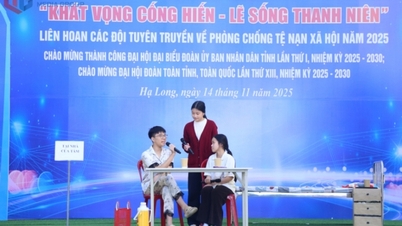

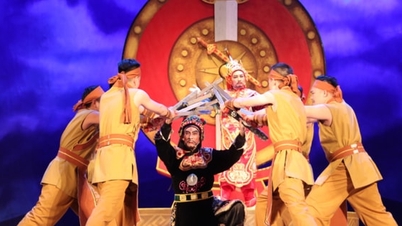





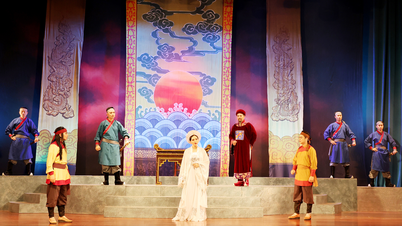

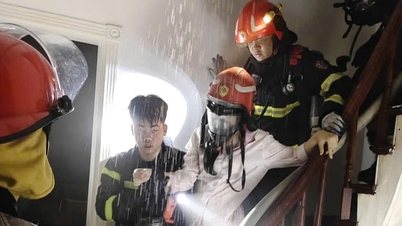


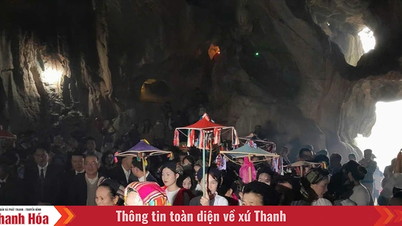

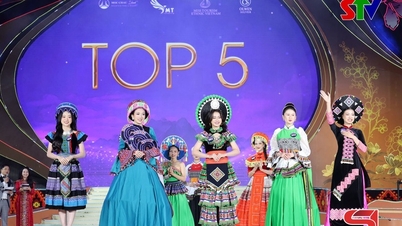


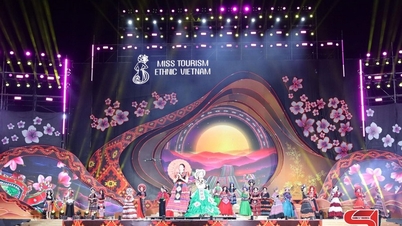





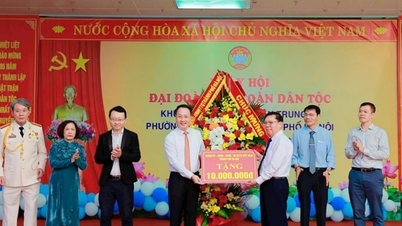
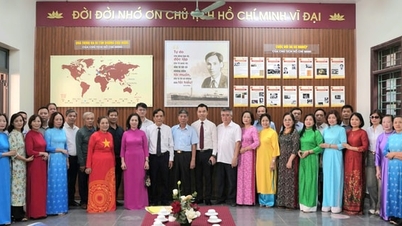

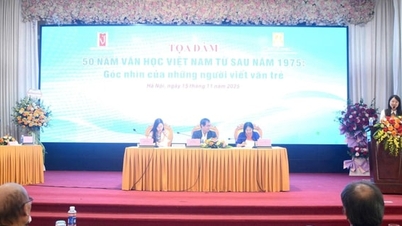
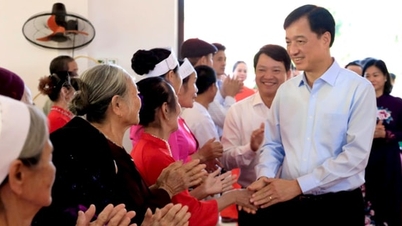




































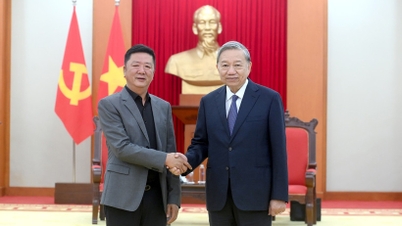

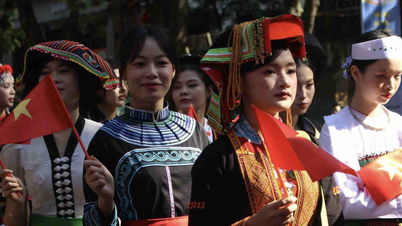

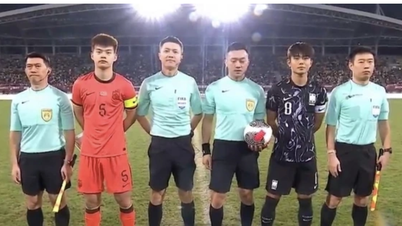

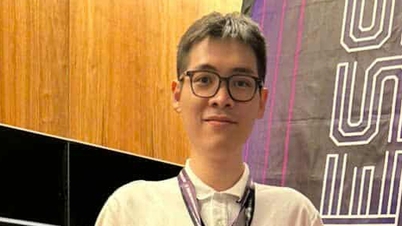

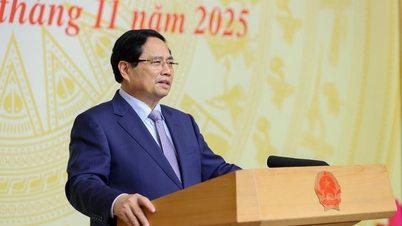






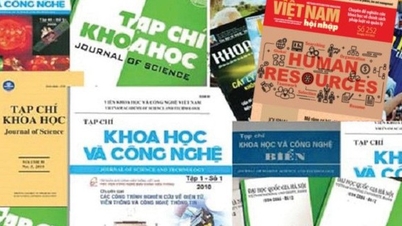
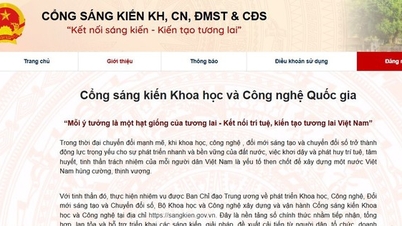

















Comment (0)